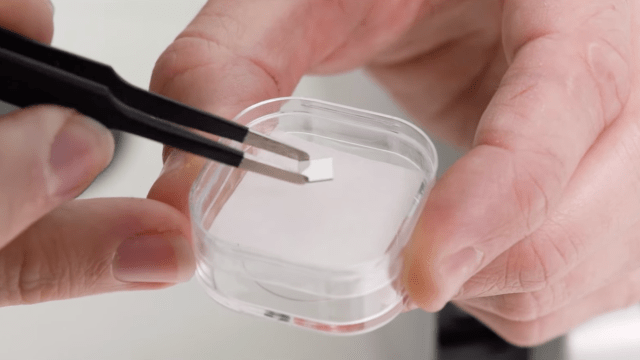It’s cold outside, but not at the Pawsey Supercomputing Research Centre in Perth. In fact, it’s a nice room-temperature there. Which is insane, because it’s housing a quantum computer.
Most quantum computers must operate at just above absolute zero in order to function. But as the Commonwealth Scientific and Industrial Research Organisation (CSIRO) detailed in a blog post, the Pawsey Supercomputing Research Centre is now home to the first room-temperature quantum computer in a supercomputing facility, anywhere in the world.
The room-temperature quantum computer has been developed by German-Australian startup Quantum Brilliance. As CSIRO explained, the two-qubit diamond quantum ‘accelerator’ uses synthetic diamonds and runs at room temperature in any environment. Bits, in traditional computing, refer only to binary values (0s and 1s); a quantum bit (qubit) is not either but both values simultaneously.
CSIRO said the Pawsey team will be testing Quantum Brilliance’s diamond accelerator system by pairing it with their new supercomputer, Setonix.
Setonix, a high-performance computer boasting the scientific name for WA’s quokka, is mega-powerful computing system described as the fastest public supercomputer in the Southern Hemisphere. It set Pawsey back a cool $48 million.
Now for the nerdy stuff.
We all know quantum computing promises to vastly increase the speed at which data can be processed. But what many of us might not know is that they require a temperature of around -273°C. CSIRO explained that these extremely cold temperatures reduce system ‘noise’ created by the movement of atoms and molecules. But keeping a quantum computer that cold is both energy intensive and expensive.
The quest for room-temperature quantum computing has been underway for decades. But, researchers have now pioneered the use of diamonds in small quantum computers, which currently run at a few qubits. These diamond quantum computers can work at room temperature.
CSIRO said this is because the ultra-hard diamond serves as a kind of quantum mechanical ‘dead space’ where qubits go to survive for a few hundred microseconds.
‘Few-qubit’ diamond quantum computers are the only solid-state devices that have, so far, demonstrated non-trivial operations at room temperature. Researchers hit a roadblock though when they tried to scale systems beyond a handful of qubits.
CSIRO said the challenge now is to improve qubit numbers and scale down the size, weight and power requirements of diamond quantum computing platforms.
Quantum Brilliance is hopeful diamond quantum computing could allow for robust applications wherever classical computers are currently found – in cars, machinery, satellites, autonomous systems…everywhere.
